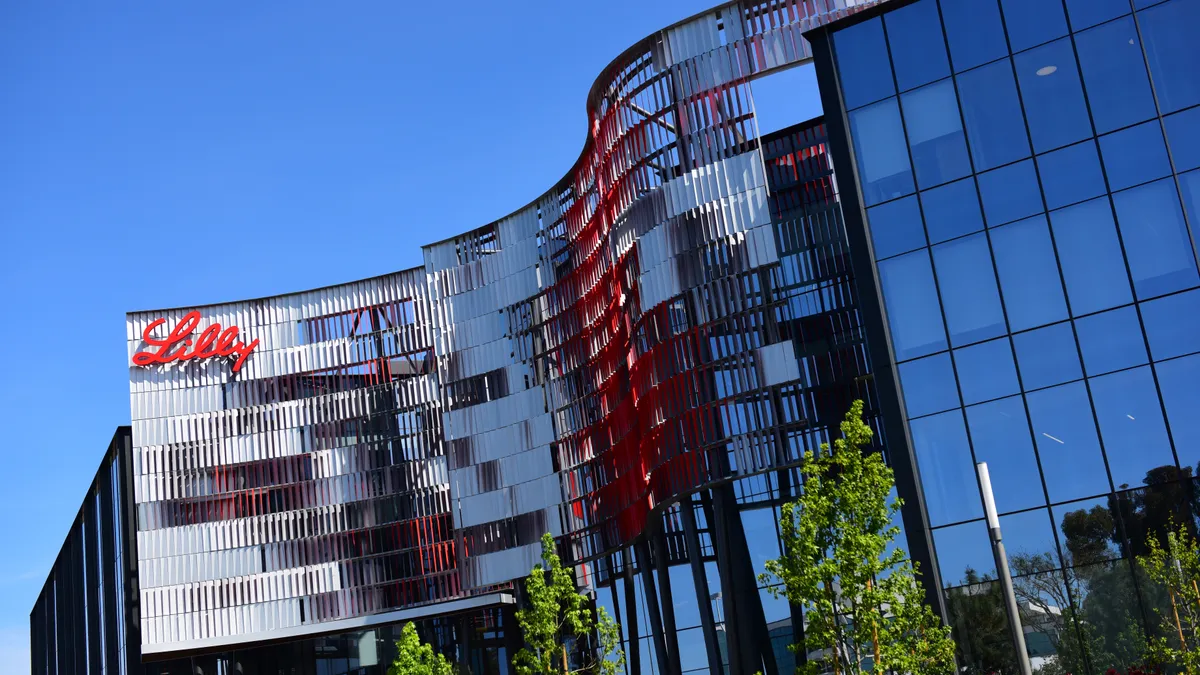Dive Brief:
- The U.S. government will resume distribution of Eli Lilly's COVID-19 antibody drug combination in a number of states, the Department of Health and Human Services said, as cases and hospitalizations in the U.S. are driven higher by the spread of the delta variant.
- The decision comes roughly two months after administration of Lilly's therapy was halted by U.S. officials due to concerns of reduced efficacy against coronavirus infections stemming from the beta and gamma variants. Those are now much less prevalent compared with delta, which laboratory testing has shown remains susceptible to treatment with the dual-antibody therapy, HHS said.
- FDA has revised the treatment's authorization to specify use only in areas where beta and gamma variants are not widely present. In states where the beta and gamma variants are more prevalent, defined as a combined frequency equal to or greater than 5%, use will remain paused, according to HHS.
Dive Insight:
The resumed rollout of Lilly's combination antibody drug marks another point in what has been a tumultuous development journey for the pharmaceutical company.
Early on in the pandemic, Lilly teamed up with the Canadian biotech AbCellera and China's Junshi Biosciences to develop antibody drugs for the coronavirus. While the companies succeeded and won FDA authorization for two treatments, use of the first, a single antibody called bamlanivimab, was halted four months after the FDA's clearance due to the spread of variants the drug couldn't effectively neutralize.
The two-drug regimen of bamlanivimab and etesevimab, which was designed to better target a mutating virus, began showing similar problems around the same time, leading to distribution being stopped in late June.
As a result, hospitals and physicians have relied on other antibody cocktails that remained effective versus the early-spreading variants, particularly one from Regeneron that former president Donald Trump received last year.
Since mid-July, when COVID-19 cases began to mount sharply in the U.S., shipments of Regeneron's treatment increased from 25,000 doses to 125,000 doses per week, a company spokesperson told Kaiser Health News. About half of the shipments went to four states: Florida, Texas, Mississippi and Alabama, all of which have relatively low vaccination rates compared to the rest of the U.S.
Use of another antibody drug developed by GlaxoSmithKline and Vir Biotechnology is also growing amid the spread of the delta variants, which Lilly estimates accounts for nearly 96% of all COVID-19 cases in the U.S right now.
As of now, the 22 states that meet the government's parameters for resuming distribution of Lilly's treatment are: Colorado, Connecticut, Illinois, Indiana, Iowa, Kansas, Maine, Massachusetts, New Hampshire, Michigan, Minnesota, Missouri, Montana, Nebraska, North Dakota, Ohio, Rhode Island, South Dakota, Utah, Vermont, Wisconsin, and Wyoming. But, as CNBC pointed out, that list does not include the states most in need of COVID-19 treatments.













